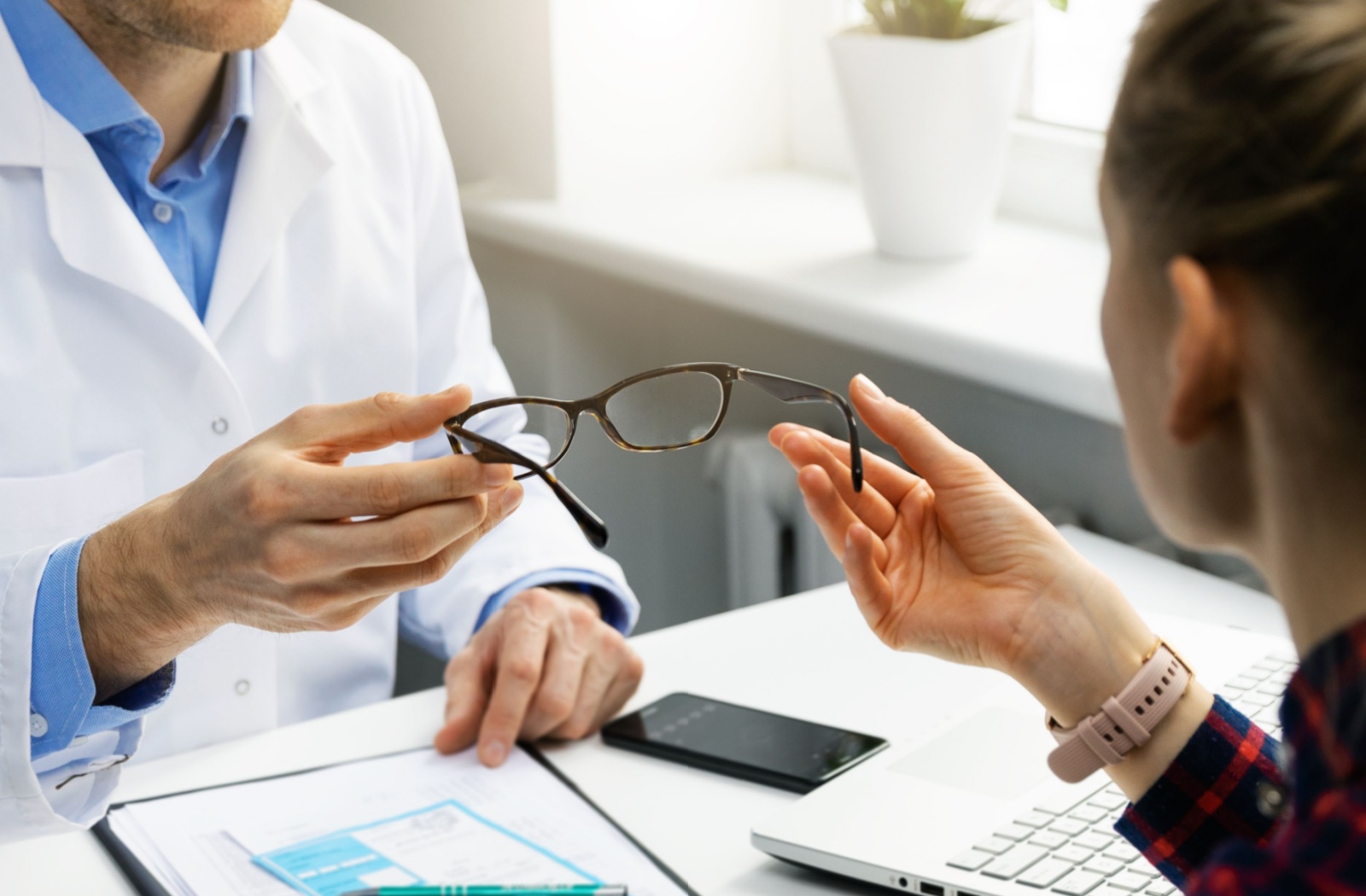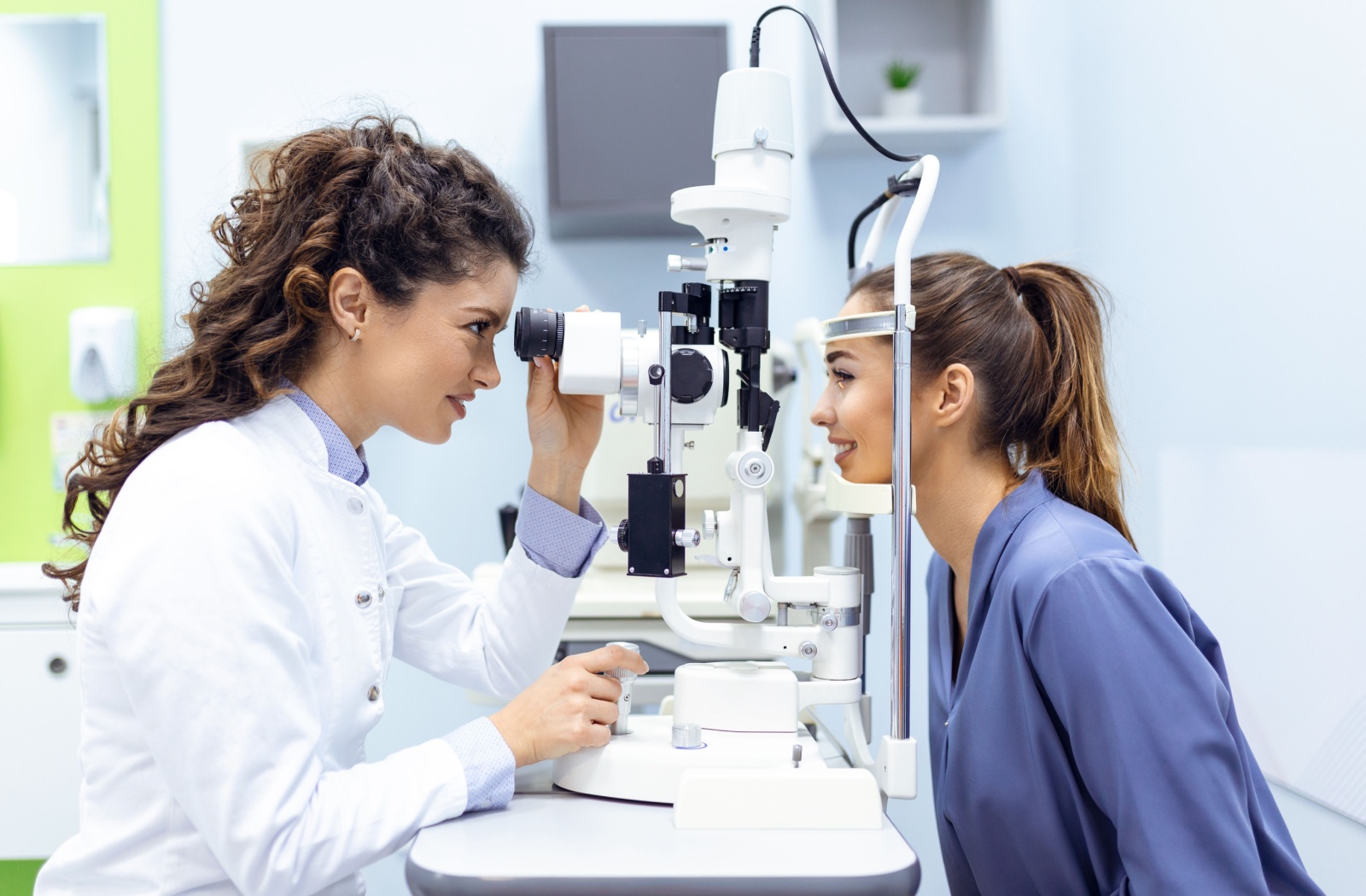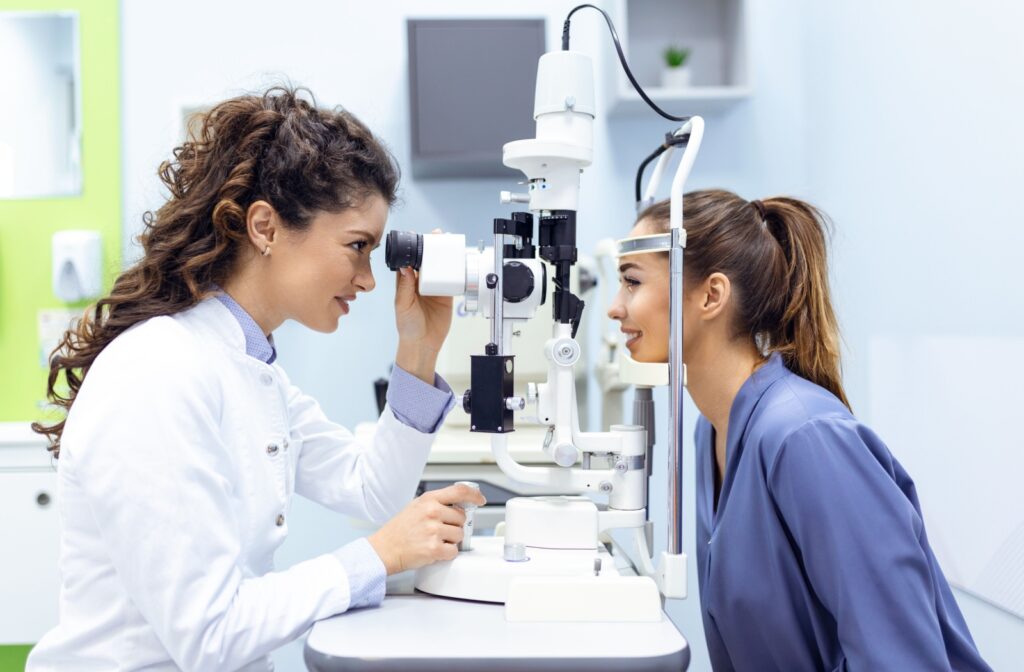Eye exams are a lot more important than you think. They’re about more than just checking your vision or reading a letter chart; they’re about gaining a proper, in-depth understanding of your overall eye health. So, what exactly is a comprehensive eye exam, and what can you expect from one?
A comprehensive eye exam is a thorough examination of your eyes and vision. During this exam, your optometrist will use a wide range of technology designed to test your vision, eye health, field of view, and more. If you have questions at any point during your exam, feel free to ask!
The Importance of Regular Eye Exams
The human eye is much more complicated than it may seem initially. As you grow from childhood to adulthood, they undergo many different changes. Due to this, you’ll likely notice some changes in your eyesight over the years.
This is one reason why regular eye exams are so important. Often, these vision changes develop slowly, and they can be difficult to detect at first. During a regular eye exam, your optometrist will examine the different parts of your eye to determine whether or not your vision could be improved. If necessary, you’ll receive an updated prescription for your glasses or contact lenses to help keep your vision clear.
However, it’s not just about vision. During your exam, your optometrist will examine the health of your eye to keep an eye out for future problems. These exams can detect potential problems long before they damage your vision—often when they’re much more treatable.
What Can Be Detected During an Eye Exam?
Eye exams allow your optometrist to look for serious problems that otherwise might go unnoticed. These can include:
- Refractive errors: These can include myopia, hyperopia, or astigmatism.
- Glaucoma: A group of conditions that can permanently damage the optic nerve.
- Cataracts: The clouding of your eye’s natural lens.
- Diabetes: Diabetes can damage the blood vessels in the back of the eye.
- High blood pressure: This can be detected through changes in the blood vessels in the eye.
- Age-related macular degeneration (AMD): This is a leading cause of vision loss in people over 50.
Catching these problems early lets your optometrist arrange for a swift and effective approach to treatment.
What to Expect from an Eye Exam
Your exam doesn’t start in the exam room. Instead, it all begins with how well-prepared you are.
Before the Exam
Before your exam, bring along any relevant information to help your optometrist better understand your eyes and medical history. Bring a list of:
- Any medical conditions you’ve been previously diagnosed with
- Any medications you’re currently taking
- Any recent changes or abnormalities in your vision
- Your family medical history
It also helps to bring along your most recent prescription. With this information, your optometrist can tailor the exam to meet your unique needs.
During the Exam
The main part of the eye exam involves several tests, each focusing on different aspects of your eye health. These tests can include:
- Visual acuity test: This measures how clearly you can see at various distances.
- Refraction assessment: This test helps determine your glasses or contact lenses prescription.
- Eye muscle test: This checks for any muscle imbalances or issues with your eye alignment.
- Visual field test: This measures your peripheral vision to look for blind spots that could indicate issues like glaucoma.
- Tonometry: This test measures the pressure inside your eye to primarily check for glaucoma.
- Optical coherence tomography (OCT): This technology takes a cross-section image of your eye to assess the health of your retina and optic nerve.
This information is valuable for helping your optometrist understand exactly what is happening inside your eyes and whether or not any problems need to be addressed.
After the Exam
Once your exam is complete, your optometrist will take some time to explain their findings. They may give you an updated prescription and explain any concerns they may have. If they believe you’re dealing with an eye condition, they’ll explain your next steps.

From start to finish, this whole process should take between 30 minutes to 1 hour. This depends significantly on whether or not your optometrist performs any additional testing.
How Often Should You Book an Eye Exam?
It’s important to try and follow a regular schedule for your eye exams to monitor any changes. It’s better to be safe than sorry.
Try to follow these guidelines when scheduling eye exams:
- For children under the age of 18, annual eye exams are recommended.
- For adults aged 18–64, one comprehensive eye exam every 2 years is recommended.
- For older adults 65 and up, annual eye exams are recommended.
- For people living with diabetes or other sight-threatening conditions, annual eye exams are recommended.
If you notice anything unusual, it helps to book your next eye exam sooner rather than later. There’s no need to put your eyes and vision at risk. Your eyes will thank you!
Book Your Next Eye Exam
Don’t wait for vision problems to arise before taking action. Instead, talk to our team here at Envision Eye Care. We’re here to help keep your eyes healthy and your vision clear. Your eyes are worth it, so book an appointment with us today.



